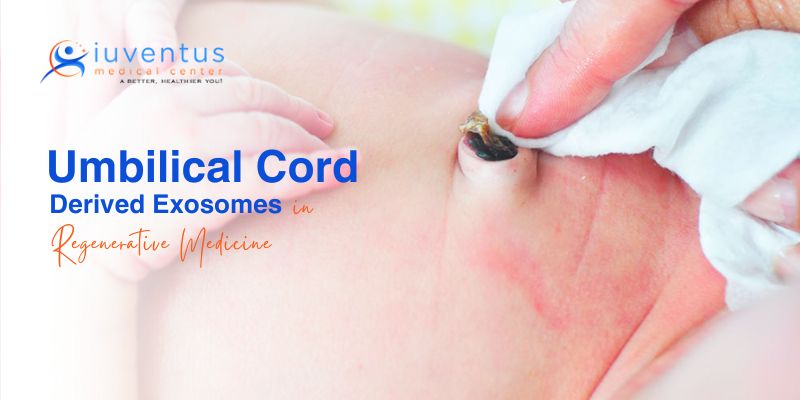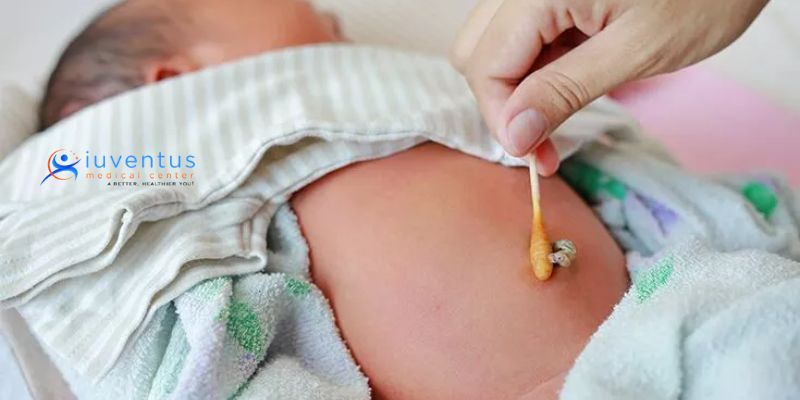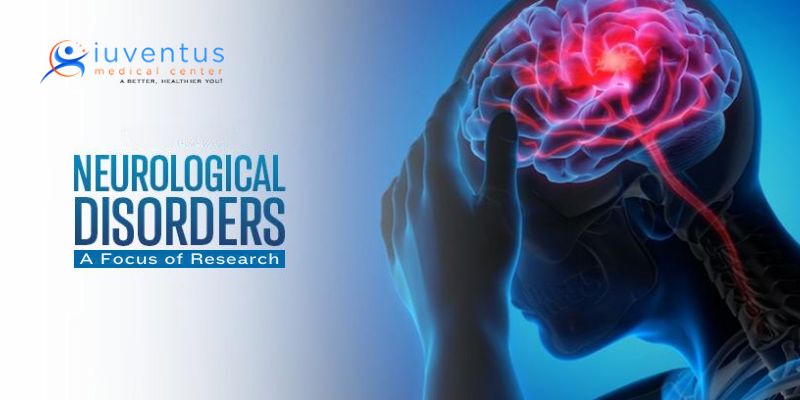Harnessing the Power of Umbilical Cord-Derived Exosomes in Regenerative Medicine

In regenerative medicine, scientists continually explore innovative approaches to harness the body’s natural healing mechanisms. One promising research avenue involves using exosomes derived from umbilical cord tissue. These tiny vesicles, secreted by cells, carry a payload of bioactive molecules with immense potential for tissue repair, immunomodulation, and therapeutic intervention. This article delves into the burgeoning field of umbilical cord-derived exosomes and their transformative role in regenerative medicine.
Understanding Exosomes: Nature’s Cellular Messengers
Exosomes, minute vesicles secreted by various cell types, serve as vital mediators of intercellular communication. Despite their diminutive size, ranging from 30 to 150 nanometers, exosomes pack a potent cargo of proteins, nucleic acids, and lipids. These bioactive molecules play essential roles in modulating cellular processes, ranging from immune regulation to tissue repair.
Originating from the endosomal compartment, exosomes are released into the extracellular environment by fusing multivesicular bodies with the plasma membrane. Once released, they can interact with neighboring cells, delivering cargo and influencing recipient cell behavior. This molecular information transfer enables cells to coordinate responses to physiological cues, maintain tissue homeostasis, and adapt to changing environments.
Exosomes have garnered considerable interest in biomedical research due to their role in various physiological and pathological processes. They participate in immune surveillance, antigen presentation, and inflammatory signaling, shaping the immune response to infection, injury, or disease. Furthermore, their involvement in tissue regeneration, angiogenesis, and metastasis underscores their significance in health and disease.
The Potential of Umbilical Cord-Derived Exosomes

Umbilical cord-derived exosomes have emerged as a promising frontier in regenerative medicine, offering unique advantages and multifaceted therapeutic potential across diverse medical domains.
Abundant and Accessible Source
One of the primary advantages of umbilical cord-derived exosomes lies in the abundant and accessible nature of their source material. Previously discarded as medical waste, the umbilical cord is now recognized as a valuable reservoir of stem cells and their secreted exosomes. Unlike other tissue sources, such as bone marrow or adipose tissue, obtaining umbilical cord-derived cells poses minimal ethical concerns and logistical challenges. This accessibility facilitates the scalable production of exosomes, essential for meeting therapeutic applications’ demands and advancing clinical translation.
Rich Bioactive Payload
Umbilical cord-derived exosomes encapsulate diverse bioactive molecules, including growth factors, cytokines, lipids, and nucleic acids. This complex cargo orchestrates many cellular processes in tissue repair, regeneration, and immunomodulation. The synergistic action of these bioactive molecules enhances the therapeutic efficacy of exosomes, promoting cellular proliferation, differentiation, and functional recovery in target tissues. Moreover, encapsulating nucleic acids, including microRNAs, enables exosomes to modulate gene expression and cellular signaling pathways, further augmenting their regenerative potential.
Immunomodulatory Potency
Another compelling aspect of umbilical cord-derived exosomes is their potent immunomodulatory properties. These exosomes can regulate immune responses by modulating the activity of immune cells, including T cells, B cells, and macrophages. Through the secretion of immunomodulatory factors and the induction of regulatory T cells, umbilical cord-derived exosomes can suppress excessive immune activation, dampen inflammatory responses, and promote immune tolerance. This immunomodulatory potency holds significant therapeutic implications for treating autoimmune diseases, inflammatory disorders, and allograft rejection, offering a novel approach to immune modulation without the adverse effects associated with traditional immunosuppressive therapies.
Versatile Therapeutic Applications
The versatility of umbilical cord-derived exosomes extends across various medical conditions, including neurological disorders, musculoskeletal injuries, cardiovascular diseases, and more. Preclinical studies have demonstrated the efficacy of these exosomes in promoting neuronal regeneration, enhancing bone and cartilage repair, and improving cardiac function in various disease models. Moreover, their ability to traverse biological barriers, such as the blood-brain barrier, expands their therapeutic reach to conditions previously deemed challenging to treat.
Therapeutic Applications of Umbilical Cord-Derived Exosomes
The therapeutic potential of umbilical cord-derived exosomes spans various medical conditions, ranging from neurological disorders to musculoskeletal injuries. Research indicates that these exosomes can modulate inflammatory responses, promote tissue regeneration, and enhance cellular repair mechanisms. Furthermore, their ability to traverse biological barriers, such as the blood-brain barrier, holds promise for treating central nervous system disorders.
Neurological Disorders: A Focus of Research

In neurological disorders, umbilical cord-derived exosomes have garnered significant attention for their neuroprotective and neuroregenerative properties. Preclinical studies have demonstrated their efficacy in mitigating neuronal damage, promoting synaptic plasticity, and enhancing functional recovery in models of stroke, traumatic brain injury, and neurodegenerative diseases like Alzheimer’s and Parkinson’s.
Orthopedic and Musculoskeletal Applications
In orthopedic and musculoskeletal medicine, umbilical cord-derived exosomes offer new avenues for promoting tissue repair and regeneration. Studies have shown their ability to stimulate the proliferation and differentiation of mesenchymal stem cells, accelerate bone healing, and mitigate cartilage degeneration in conditions such as osteoarthritis. Additionally, their anti-inflammatory effects hold promise for managing conditions characterized by chronic joint inflammation.
Immunomodulatory Effects and Autoimmune Disorders
The immunomodulatory properties of umbilical cord-derived exosomes make them particularly attractive for treating autoimmune disorders, where aberrant immune responses contribute to tissue damage and dysfunction. These exosomes have been shown to suppress excessive immune activation, regulate inflammatory pathways, and induce tolerance in models of autoimmune diseases such as rheumatoid arthritis, multiple sclerosis, and inflammatory bowel disease.
Challenges and Future Directions
While the therapeutic potential of umbilical cord-derived exosomes is promising, several challenges remain to be addressed. Standardizing isolation and purification techniques, elucidating optimal dosing regimens, and long-term safety assessments are paramount for translating preclinical findings into clinical applications. Additionally, regulatory frameworks and ethical considerations surrounding using human-derived biological materials necessitate scrutiny and oversight.
Despite these challenges, ongoing research efforts continue to advance our understanding of umbilical cord-derived exosomes and their therapeutic applications. Collaborative endeavors between scientists, clinicians, and regulatory agencies are essential for navigating the complexities of translating exosome-based therapies from bench to bedside.
Conclusion
Umbilical cord-derived exosomes represent a promising frontier in regenerative medicine, offering multifaceted therapeutic benefits across various medical conditions. Their ability to modulate immune responses, promote tissue repair, and enhance regenerative processes holds transformative potential for addressing unmet clinical needs. As research in this field continues to evolve, umbilical cord-derived exosomes may emerge as a cornerstone of personalized regenerative therapies, ushering in a new era of medical innovation and patient care.
